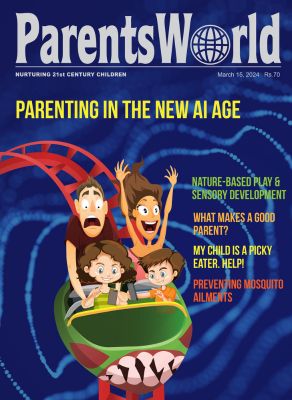Dr. Mithu Alur (founder chairperson of the National Resource Centre for Inclusion, Mumbai)
The Congress-led UPA-2 government in New Delhi must be applauded for passing the historic Right to Free and Compulsory Education Bill which could become an Act of Parliament any day now. This legislation was long overdue and will undoubtedly benefit millions of Indias children. However the fate of 30 million children who are disabled or differently abled remains dismal, as they have been left out of the purview of the Bill. This means that children with disability arent included in the 25 percent reservation in class I of private neighbourhood schools, which has been given to weak and disadvantaged children as defined in s.2 (d) of the Bill.
Those of us who have devoted our lives to the education of disabled children, and have shown that they can eminently benefit from education, are in a state of shock and disbelief to find that the RTE Bill has not included them in its definition of disadvantaged children. This despite assurances of the prime minister and Mrs. Sonia Gandhi. Although the media — especially NDTV and the Indian Express — have highlighted this lacuna of the RTE Bill, until the Act is amended, or children with disability are notified as disadvantaged, their education remains a grey area.
In response to our concerns and apprehensions, Union human resource development minister Kapil Sibal says that disabled children have been included as per the proviso in the Persons with Disabilities Act, 1995. According to him, this provision automatically extends the right to education to disabled children as defined by the PWD Act. This is not correct. In fact, it dilutes the right to education of disabled children.
Mainstream education can be denied to disabled children because of the use of terminology such as appropriate environment” (which could be interpreted as education at home!) in the PWD Act. The stark truth is that the PWD Act does not endow children with disability the fundamental right to free and compulsory education as does the RTE legislation. It does not guarantee the protection of the 93rd Amendment to the Constitution which includes ‘education for all to children with disability which took us three decades to achieve when the Amendment was tabled in Parliament! Besides the PWD Act has no clear and specific guidelines for implementation with effective dates, deadlines, alternate arrangements, temporary reliefs etc.
To this day there are many barriers to inclusive education for disabled children in India. Lack of infrastructural support and funding has ensured that during the past 60 years since independence, a mere 2 percent of children with disabilities have been included in mainstream education — a shocking illustration of institutionalised discrimination. And now following exclusion from the RTE Act, children with disabilities have fallen into the cracks between the PWD Act and the RTE Act once again.
Therefore there is an urgent necessity to amend the RTE Bill so that all children (disabled and non-disabled) have a fundamental right to education under s.3 of the RTE Bill without any cross-referencing to the PWD Act being necessary. The proposed amendment needs to add the words including children with disability” into the definition of disadvantaged groups as specified in s.2 (d) of the RTE Act.
We would also like to draw the ministers attention to the fact that contemporary global
practice is not to categorise children with disability in a diagnostic manner as does the PWD Act. For educational purposes children with disability are categorised as individuals with ‘special educational needs (SEN) — an all-encompassing definition which goes beyond disability: it includes all children who require special education, a much broader definition than disability.
To address the above issues, we suggest that the RTE defines:
‘Child with Disability as a child with physical or mental impairment which has a substantial and long-term adverse effect on her ability to perform normal day-to-day activities.
‘Children with Special Educational Needs as children with learning difficulties or disabilities which make it harder for them to learn or access education than most other children of the same age.
These broad definitions will include non-disabled children with learning problems. Indeed, for truly inclusive education, its important to acknowledge the diversity of all children and provide interventions respecting different learning styles.
‘Education for All has become an international rallying call for inclusive education. Even today people are denied access to education because of stereotypes, devaluing attitudes, systems and public policies that do not accommodate diversity. This is a grave violation of human rights. Inclusive education is about minimising exclusion. Entrenched attitudes and practices, policies and laws are barriers to inclusion. Therefore the time has come to bring children with disability squarely within the purview of a suitably amended RTE Bill/Act.




























